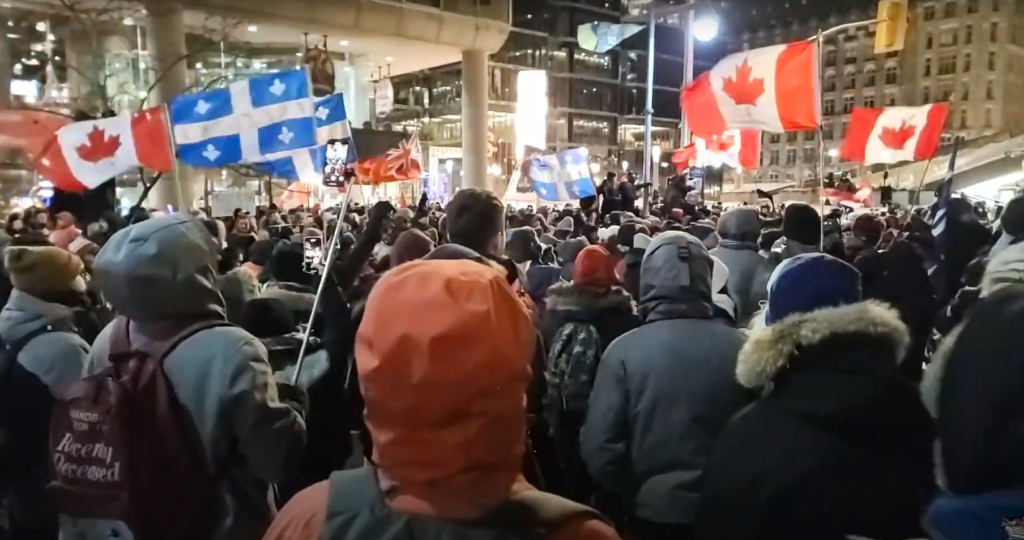OTTAWA, ON: The Justice Centre for Constitutional Freedoms is pleased to announce that all charges against peaceful Freedom Convoy protestor Ben Spicer have been dropped. Mr. Spicer was arrested in Ottawa on February 19, 2022, and charged with mischief, obstructing justice, and weapons charges. In his decision, Justice Timothy Lipson ruled that a secret recording of Mr. Spicer violated his Charter rights.
Like thousands of other Canadians, Mr. Spicer attended the peaceful Freedom Convoy protest in the nation’s capital. He was standing near the intersection of Bank Street and Sparks Street when police struck him at least twice in the midsection. An officer pulled him off the ground and handed him over to another officer. His backpack and jacket were searched, revealing a can of bear spray and a folding pocketknife. He explained that these were from a recent hiking trip. He had not taken the items out of his backpack or jacket at any time during the protest.
Officers loaded Mr. Spicer into a police van – equipped with a video and audio recording device. Mr. Spicer was not aware that he was being recorded. There were no signs, and he was not told by the officers. At no point was Mr. Spicer able to access legal counsel.
His trial proceeded at the Ontario Court of Justice from November 6 to 8, 2023, and again from April 16 to 18, 2024. The Crown tried to submit the recording as evidence against Mr. Spicer. They argued that the Court should infer criminal activity from the contents of the recording and that Mr. Spicer had no reasonable expectation of privacy in a police vehicle. Mr. Spicer’s defence counsel disagreed. To rule that a detainee has no reasonable expectation of privacy while in police custody would be to favour the outcomes of law enforcement without any proper regard for the rights of detainees. His defence also argued that there was no evidence of criminal activity against Mr. Spicer and that his arrest was, therefore, unlawful.
On August 2, 2024, Justice Lipson ruled that Mr. Spicer had a reasonable expectation of privacy while in custody, especially since Mr. Spicer is presumed innocent until proven guilty. Because Justice Lipson found that the secret recording violated Mr. Spicer’s privacy rights, the recording was excluded as evidence from the trial.
Justice Lipson also found that police had no grounds for the arrest. Indeed, police had breached his right not to be arbitrarily detained or imprisoned – protected by section 9 of the Canadian Charter of Rights and Freedoms.
Because his arrest was unlawful, Justice Lipson ruled that the search of his backpack and jacket was also unlawful and excluded the contents as evidence as well. All Canadians have the right to be secure against unreasonable search and seizure – protected by section 8 of the Charter. Finally, Justice Lipson found that police had breached his right to retain and instruct counsel without delay – protected by section 10(b) of the Charter. All charges against Mr. Spicer were dismissed.
Lawyer Monick Grenier stated, “I am very satisfied that the judge recognized serious breaches of Mr. Spicer’s section 8, 9, and 10(b) Charter rights, and excluded the evidence after conducting an analysis, effectively gutting the Crown’s case.”
Mr. Spicer stated, “I am extremely grateful for everything that the Justice Centre and Ms. Grenier has done. I thank the Justice Centre for funding my defence, with particular thanks to all those who donated.”








